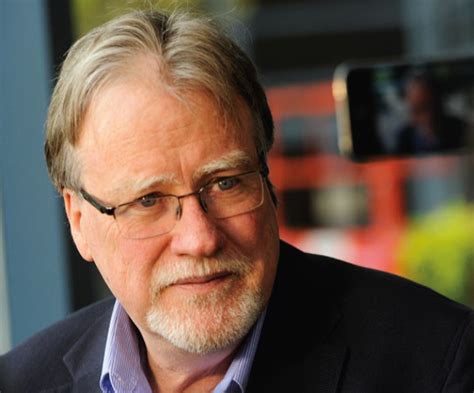A Quote by Tamlyn Tomita
In fact, when we as neuro-typical people encounter a person with autism spectrum syndrome who's always been that way it is that we have to adjust. Just because we can read people with autism correctly, whatever that word is why do we always default to saying, 'Well, that kid is not normal?' What is normal?
Related Quotes
Autism isn't something a person has, or a shell that a person is trapped inside. There's no normal child hidden behind the autism. Autism is a way of being. It is pervasive; it colors every experience, every sensation, perception, thought, emotion and encounter - every aspect of existence. It is not possible to separate the autism from the person – and if it were possible, the person you'd have left would not be the same person you started with.
I think one of the problems with the definition of autism is we keep expanding it. It started as "early infantile autism", and then it became "autism", and now it's "autism spectrum disorder". I'm not opposed to that from the standpoint of trying to broaden our vistas, and so forth. But from a research point of view, the term autism is lost in specificity.
My autism is a very mild form. It was diagnosed at the age of 25, partly because it wasn't diagnosable as a teenager (this is Asperger's syndrome, specifically). But there were certainly traits within that condition, within the autism spectrum in general, especially at the high functioning end, that I think are best looked at as pluses.
As the diagnosis of autism is increasing the diagnosis of mental retardation is decreasing. And more and more on the other end, the high end, more children who are just a little bit off, who ordinarily you would not single out now are being described as perhaps Asperger’s syndrome or on the high end of the autism spectrum, so I don’t believe there is an epidemic.
I think that if I could do any sort of research of autism that I wanted to do, at this point I would take a sample of classic, early infantile autism persons and compare them with what I call "classic late onset autism", individuals. I think we will find that the cause of those youngsters with autism who have autism from birth is probably different than those who have late onset autism.






























